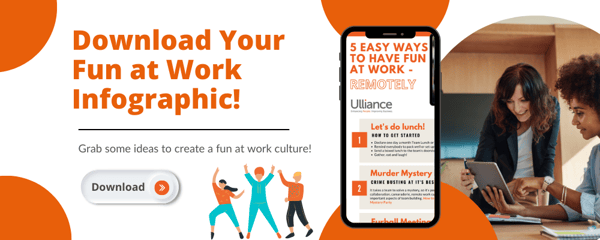As humans, we are bound to make mistakes - and that includes in the workplace. And much like in our personal lives, workplace mistakes often require an apology. But it's important to know how to apologize effectively.
Transparency and accountability are crucial in maintaining healthy workplace relationships, and offering a sincere and well-executed apology can make all the difference.
Why Apologize in the Workplace?
Apologizing effectively in the workplace is not just about admitting fault; it is an essential aspect of fostering trust, maintaining healthy communication, and nurturing a positive work environment.
Key Reasons Why effective workplace apologies matter:
Building Trust and Relationships.
Apologizing demonstrates humility and sincerity, which can help build trust among colleagues. It shows that you take responsibility for your actions and genuinely care about the impact they had on others. This can lead to stronger relationships and a more collaborative and supportive work environment.
Resolving Conflicts and Preventing Escalation.
Workplace conflicts can quickly escalate and create a toxic atmosphere if not addressed promptly. Offering a genuine apology can serve as a catalyst for resolving conflicts and preventing further damage. It opens the door for open communication, allowing all parties involved to express their feelings and concerns.
Personal and Professional Growth
Accepting responsibility for one's mistakes is a sign of maturity and a willingness to learn and grow. Apologizing provides an opportunity for self-reflection and self-improvement, enabling individuals to recognize patterns of behavior that need adjustment. It encourages personal and professional growth for both the apologizer and the recipient of the apology. Apologizing effectively requires careful consideration and thoughtful execution.
7 Key Steps to follow for apologizing effectively in the workplace:
-
reflect on your actions- before approaching the individual or individuals you need to apologize to, take time to reflect on your actions and the impact they had. Understand the emotions and concerns of the affected parties, putting yourself in their shoes. This reflection will help you gain insight into the gravity of the situation and approach the apology with empathy and sincerity.
-
schedule a meeting- reach out to the affected party or parties and request a meeting. Choose a private setting where you can have an open and honest conversation without distractions. Respect the other person's schedule and choose a time that works for both of you.
-
communicate your remorse and acknowledge responsibility- Begin the apology by acknowledging your responsibility for the mistake or offense. Harvard Business Review suggests this:“Don't think in terms of an ‘expression of regret. Instead, your goal should be actually communicating your regret, that is, getting it across to the other person.” Choose your words carefully and use direct language to convey your sincerity. Avoid making excuses or shifting blame to others.
-
be specific and address the impact- Clearly articulate what you did wrong and how it affected the other person or people involved. Take responsibility for the consequences of your actions and demonstrate your understanding of the impact they had. This shows that you have taken the time to reflect on the situation and genuinely comprehend the ramifications.
-
Offer a plan for improvement- outline your plan for rectifying the situation and preventing similar mistakes in the future. Be proactive in addressing the issue and demonstrate your commitment to personal growth and improvement. This reassures the affected party that you are actively taking steps to prevent a recurrence.
-
Practice active listening and empathy- Allow the other person to express their thoughts and emotions without interruption. Practice active listening, showing empathy and understanding. Validate their feelings and concerns and avoid becoming defensive or dismissive. This part of the conversation is crucial in rebuilding trust and fostering open communication.
-
follow and learn from the experience- after the apology, follow up with the individual or individuals to ensure they feel heard and respected. Maintain open lines of communication and be receptive to any further discussions or concerns they may have. Use the experience as a learning opportunity for yourself and strive to implement the lessons learned into your future behavior. By demonstrating your commitment to personal growth, you reinforce the sincerity of your apology.

Common Pitfalls to Avoid
While understanding the steps to effective workplace apologies is crucial, it is equally important to be aware of common pitfalls and mistakes that can undermine the effectiveness of your apology.
pitfalls to avoid:
Insincere Apologies.
Apologizing without genuine remorse or just going through the motions can do more harm than good. Ensure that your apology is heartfelt and authentic. Take the time to reflect on your actions and truly understand the impact they had on others.
Lack of Specificity.
A vague apology can leave the affected party feeling unsatisfied and skeptical of your sincerity. Be specific about the mistake you made, acknowledging the details and the consequences. This demonstrates that you have taken the time to understand the situation and accept responsibility for your actions.
Defensiveness and Excuses.
Avoid becoming defensive or making excuses for your behavior. It is natural to feel the need to protect yourself, but deflecting blame or making justifications undermines the effectiveness of your apology. Focus on taking responsibility and addressing the concerns of the affected party.
Delayed Apologies.
Timeliness is crucial when offering an apology. Delaying an apology can allow resentments to build and exacerbate the negative impact of your actions. Recognize the need for an apology as soon as possible and take prompt action to address the situation.
Lack of Follow up.
An effective apology requires ongoing effort. After the initial conversation, make sure to follow up with the affected party to check on their well-being and ensure that the situation has been resolved to their satisfaction. This demonstrates your continued commitment to repairing the relationship.
Teaching Employees the Art of Apology
Given that mistakes are inevitable, employers should consider helping their employees understand how to apologize effectively.
7 Strategies Employers should consider:
-
Provide Training and Resources- organize training sessions or workshops specifically focused on effective communication and conflict resolution skills. Include modules on the importance of apologies and techniques for delivering sincere and meaningful apologies. Your employee assistance program can help organize and facilitate these sessions.
-
Lead by example- employers and supervisors should lead by example when it comes to apologies. Demonstrate the importance of taking responsibility for mistakes and model effective apology behaviors in your interactions with employees.
-
Incoporate Apology Skills in Onboarding Programs- During the onboarding process for new employees, include information on the importance of apologies and how to deliver them effectively. Emphasize the value of open communication, accountability, and maintaining positive relationships within the workplace. Introduce workplace values that encourage honesty, respect, and taking responsibility for one's actions.
-
provide resources and guidelines- develop resources such as handouts or pamphlets, which outline the steps for effective apologies. Include tips on active listening, acknowledging impact, and offering solutions to prevent similar mistakes. Distribute these resources to employees and make them readily available for reference.
-
foster a feedback culture- create a culture where giving and receiving feedback is encouraged and valued. Regularly provide constructive feedback to employees and encourage them to do the same. This cultivates an environment of open communication and continuous improvement, where apologies are seen as opportunities for growth rather than signs of weakness.
-
encourage emotional intelligence- promote the development of emotional intelligence among employees. Emotional intelligence encompasses self-awareness, empathy, and the ability to manage emotions effectively. By enhancing emotional intelligence, employees can better understand the impact of their actions and express genuine remorse when necessary.
-
offer mediation or conflict resolution resources- implement a mediation or conflict resolution program within the organization. Provide access to trained mediators who can facilitate constructive conversations and help parties involved in conflicts find common ground. This ensures that apologies are not only given but also received and accepted in a supportive and mediated environment.
Effective Apologies Can Create a Stronger Workplace
By implementing the strategies outlined here, employers can create a workplace culture that values effective apologies, open communication, and personal growth. Encouraging employees to apologize effectively not only resolves conflicts but also strengthens relationships, enhances teamwork, and contributes to a positive and productive work environment.
When you partner with Ulliance, our Life Advisor Consultants are always just a phone call away to teach ways to enhance your work/life balance and increase your happiness. The Ulliance Life Advisor Employee Assistance Program can help employees and employers come closer to a state of total well-being.
Investing in the right EAP or Wellness Program to support your employees will help them and help you. Visit https://ulliance.com/ or call 866-648-8326.
The Ulliance Employee Assistance Program can address the
following issues:
• Stress about work or job performance
• Crisis in the workplace
• Conflict resolution at work or in one’s personal life
• Marital or relationship problems
• Child or elder care concerns
• Financial worries
• Mental health problems
• Alcohol/substance abuse
• Grief
• Interpersonal conflicts
• AND MORE!
Have some questions about our services? Book a quick meeting below!
References:
11 Alternatives to ‘I’m Sorry’ When Resolving a Professional Dispute, Forbes Coaches Council, Forbes
https://www.forbes.com/sites/forbescoachescouncil/2019/05/06/11-alternatives-to-im-sorry-when-resolving-a-professional-dispute/?sh=4c86c4f161f4
Active Listening in the Workplace: How It Makes You a Stronger Manager, Indeed
https://www.indeed.com/hire/c/info/active-listening-in-the-workplace-for-managers
Apologizing Effectively: A Guide for Managers, Indeed
https://www.indeed.com/hire/c/info/apologizing-effectively
The Art of the Apology, Harvard Business School; https://hbswk.hbs.edu/archive/the-art-of-the-apology
The Art of Saying Sorry, How to Make Your Apology as Effective as Possible, John Boitnott, Inc., https://www.inc.com/john-boitnott/the-art-of-saying-sorry-how-to-make-your-apology-as-effective-as-possible.html

